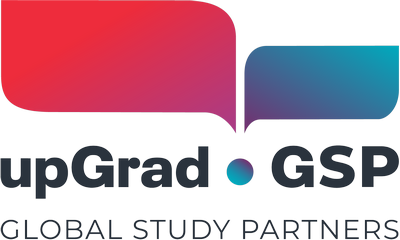US Citizenship and Immigration Services (USCIS) and the US Department of Homeland Security (DHS) implemented a final rule modernising the H-1B program. The new measure streamlines the approvals process, increases flexibility for employers and improves the integrity of the visa. This spells great news for the international education sector as it expands opportunities for foreign students to join the program after graduation.
Modernising and improving the H-1B program
The H1-B non-immigrant visa program allows foreign workers in specialty occupations to temporarily work in the US. These ‘specialty occupations’ require specialised knowledge through a bachelor’s degree (or higher) in a specific field or equivalent.
The new H-1B rule introduces several improvements, including:
- modernising the definition, criteria and scope of specialty positions
- extending flexibilities for transitioning from an F-1 (student) to an H-1B visa
- speeding up the processing of applications for already previously approved H-1B holders
- strengthening the program’s security and integrity through inspections and penalties.
The new rule became effective on 17 January 2025.
How the new H-1B rule affects international students
The new H-1B rule benefits international students who hope to maximise their post-study work rights and remain in the US to gain professional experience. Here’s a look at what foreign students stand to gain with the new measure:
Expanded eligibility
Previously, international students opting for an H-1B visa had to be employed in a job ‘directly related’ to their degree. This limited some qualified candidates, such as those with interdisciplinary degrees, from entering the workforce.
The new rule comes with refreshed language, expanding the program scope of eligibility to include graduates ‘in a directly related specific specialty’ to obtain jobs in niche sectors, given that there is a ‘logical connection’ between their degree and the work.
“USCIS specifies in the regulation that there could be a ‘range of qualifying degree fields’ if each field is ‘directly related to the duties of the position.’ USCIS also addressed that it was not focusing on degree titles and would consider whether the noncitizen’s ‘actual course of study is directly related to the duties of the position,” explained the news site Immigration Impact.
Furthermore, international students or workers with a ‘controlling interest’ in their own business are now eligible for an H-1B visa ‘subject to reasonable conditions.’ However, visas in this category are only valid for a maximum of 18 months for the first application and another 18 months for an initial extension. In contrast, other H-1B visas have a validity of up to three years.
Longer visa transitions
Prior to the new rule, F-1 visa holders only had 60 days to maintain their legal status. In this period, they must either return to their home country or transition to a different visa category. Many students saw their immigration status lapse due to processing delays related to an H1-B petition – that is, the 60 days wasn’t enough time for them to change their status.
Now, the ‘gap’ between transitioning from an F-1 to an H1-B visa has been extended through an ‘automatic ‘cap-gap’ extension.’ The ‘cap-gap’ period starts when an international student’s status and employment authorisation expires and, unless terminated, ends on 1 April of the fiscal year for which the H-1B status is being requested or until the validity start date of the approved petition – whichever is earlier. This allows students with a pending or approved cap-subject H-1B petition to remain in F-1 status during the cap-gap period.
USCIS explains further: “Cap-gap occurs because an employer may not file, and USCIS may not accept, a cap subject H-1B petition submitted more than 6 months in advance of the date of actual need for the beneficiary’s services or training. As a result, the earliest date that an employer can file an H-1B cap-subject petition is 1 April for the following fiscal year, which starts 1 October.”
Cap exemptions
Certain non-profit and governmental organisations are exempt from annual caps imposed on H-1B visas. These groups previously had to prove that research was their ‘primary mission.’ But now, organisations that can demonstrate that research is ‘one of their fundamental activites’ may now be exempted, as well. This broadens the possible pool of employers available to international students.
Greater security
The modernised H-1B rule also includes provisions that enable immigration authorities to apply stricter scrutiny to employers and workers. This means that employers need to be prepared to submit more documentation and be subject to site visits from immigration staff. Failure to comply with the standards of USCIS will result in stiff penalties.
Staying ahead in the global market
The new H-1B visa terms are designed to help the US maintain skilled foreign talent and stay competitive in the global market while keeping the integrity of its immigration laws and protecting its local talent pool.
According to DHS Secretary Alejandro N. Mayorkas: “American businesses rely on the H-1B visa program for the recruitment of highly skilled talent, benefitting communities across the country. These improvements to the program provide employers with greater flexibility to hire global talent, boost our economic competitiveness, and allow highly skilled workers to continue to advance American innovation.”
To stay updated on visa news in the US, bookmark this page. Get in touch with our business development experts to know more about post-study work opportunities in the US!




